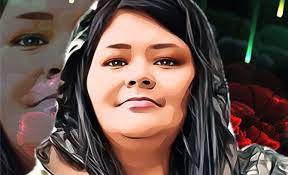How Racism Played a Part in the Death of Joyce Echaquan
“‘You’re stupid as hell,’ good only at having sex, ‘and better off dead.’”
Last year, a nurse at Joliette Hospital in Quebec uttered those words to a patient in the hospital, Joyce Echaquan. Ms. Echaquan caught the interaction on camera because she had started a Facebook Live video.
Ms. Echaquan had called her husband moments before capturing the nurse’s cruel words because the hospital had been overmedicating her. Ms. Echquan died two hours later from heart problems. On that same day she died, Ms. Echquan had been left for 11 minutes without proper monitoring then soon after went into cardiac arrest.
When the video surfaced, people in Canada criticized the Canadian universal healthcare system for its cruel treatment of indigenous people. According to the New York Times, Alisha Tukkiapik, an Inuk social worker from Nunavik, shared that she was constantly asked by doctors if she had a substance abuse problem when she was pregnant with her daughter. She said, “‘When I reply ‘no,’ then they will ask me, ‘Are you sure. Not even a little bit?’”
The doctor’s questions are a representation of the larger discrimination indigenous people in Canada experience. Indigenous people have been confined to small reserves across the country, usually without access to clean drinking water or medical and emergency services. In 2016, an 8-year-old girl in Manawan, a reserve about two and a half hours away from the Joliette Hospital, died from drowning because she had to wait for an ambulance. The reserve got its first ambulance two years later in 2018.
The death of Joyce Echaquan is only one example of the discrimination that indigenous people in Canada and around the world face every day. It is important to put aside any stereotypes targeted toward, typically, minority groups to prevent similar occurrences from happening in the future. One life is more than enough.




Your tells and spotlights the tragic story of Joyce Echaquan. Her treatment hardly sounds like health care in any way. Your blog also touches on several important issues; for instance how do health care workers (public figures in general) interact with groups that, often due to negligible access or socio-economic issues, suffer from certain afflictions. Your blog also raises the fundamental questions of "what is health care?" and "what kind of efforts are part of preventative health care?"
ReplyDelete